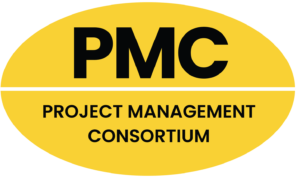When embarking on a commercial renovation project, the importance of a meticulously planned moving strategy cannot be overstated. Such projects typically require a temporary relocation of office equipment, furniture, and even staff. The logistical demands can be overwhelming without a well-structured plan.
Understanding and implementing effective moving strategies is crucial to ensure the renovation process is seamless, minimally disruptive, and cost-effective. An essential tool in this planning process is this handy moving calculator, which helps businesses estimate moving costs accurately, allowing for better budget management and preparation.
Strategic Planning: The First Step to Effective Relocation
Strategic planning is the first key element of a successful move after any shop renovation has been completed. Organizing subjects in such a way that it takes you through the several steps that occur even when making the planning of the renovation. Firstly, businesses need to establish what needs to be relocated and what can continue to be where they originally were. That is not only a question of physical assets but of data and IT infrastructure whose transportation mode sometimes needs certain fixers.
Look into the timetable next. Precision in timing is essential in minimizing the potential impact of conflicts. Many businesses will probably have to do this by moving goods around during low traffic, on weekends, or even through the night. The construction team will work closely with us to coordinate moves and ensure that they are synchronized with the renovation stages. This will help to minimize eventual delays if they occur at all.
To claim the deductions, you must also create a complete list of allowable expenses. Among these are various items such as furniture, computers, equipment, and files. This will be a great inventory that not only makes our move easy but also provides direction on how to turn the new or renovated space. Imprecision of the items is attributed to and a clear register of the new design will largely reduce the time of moving and setting them up and hence, no business downtime is required.
Leveraging Technology for Efficient Moves
Our modern digital era is the vortex where sufficiently using information technology could speed up the task of moving strategies. Though the simplicity of these devices might not be much conceived by many people, it is very important when having the need to carry out basic calculations. They enable organizations to have an accurate image of the costs involved in moving them, and this offers each company the ability to get rid of wasting money as well as ensures no surprises in terms of finances. Apart from this, the software can act as a tool to track the progress of the move and to make sure that every component of the operation is in sync with others.
Technology can sometimes take over still the most intricate aspects of a move, for instance, space planning. Implementing CAD as well as layout design tools will enable to visualization of the reorganization and determine the best option prior to actually relocating the equipment. Another key element in the move management benefit is that it can be a pivotal instrument for asset management and make sure that everything that is brought along during the relocation and afterward is present.
Conclusion
The moving strategies that ultimately are effective are the ones that represent the cornerstone of a positive project. These strategies, however, do not only put into practice the mere physical relocation of companies but also about maintaining operations, cost management, and efficiency of the new space. Using diligent planning, utilizing proper technical aids and keeping a tight rein on executing the project precisely, businesses can be sure that they are meeting the requirements of completing renovation projects on time and within budget with minimum hindrance.
Besides, we are going fully prepared by including the mentioned moving calculator during the smooth planning process. This is not just for preparing the business but also to empower it to make informed and strategic choices that fulfill its objectives and constraints. The correct tactics and instruments will not only help to cross the transitional period during renovation but also contribute to the greater effect of the business and its long-term success.










 The 2024 virtual Men’s Round Table will be held Q4, 2024, date TBD.
The 2024 virtual Men’s Round Table will be held Q4, 2024, date TBD.













